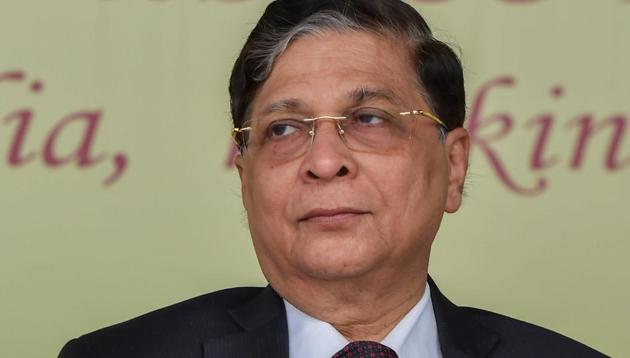Ex-CJI Dipak Misra refuses to comment on Kurian Joseph’s remarks
Former CJI Dipak Misra declined to respond to comments of his colleague and retired judge of the Supreme Court Justice Kurian Joseph that there was concern that the CJI was allocating cases to judges with a particular political bias.
Former Chief Justice of India (CJI) Dipak Misra on Monday said he would not respond to comments of his colleague and retired judge of the Supreme Court Justice Kurian Joseph, one of the four judges who held a press conference airing their grievances against Misra in January, that there was concern that the CJI was allocating cases to judges with a particular political bias and also perhaps acting under the influence of external forces.

The Congress, the country’s principal Opposition party, expressed “grave apprehension of the party and of the country” over the “interference with the highest levels of judiciary”.
“A Supreme Court judge who demitted office a couple of days ago has in clear and unequivocal terms talked of the arbitrary bench selection, external influences,by implication remote controls and political biases. Our allegation is that these are injected into the system by the Government of India, by the ruling party,” said senior Congress spokesperson Abhishek Singhvi.
Justice Joseph retired on November 29.
Singhvi added that his party demanded an immediate response from the Prime Minister and said this government “has become known for ...erosion of ... CBI, the Lokpal, the CIC, of Universities and above all, now as it happens from this statement, the Supreme Court of India.”
Justice Misra, who was CJI between August 2017 and October 2018, declined to speak to Hindustan Times, and excused himself.
On Monday, Justice Joseph said: “There was a general perception among the judges that Justice Misra was acting under some external influence and he was not independent. We (Justice J Chelameswar, Justice Ranjan Gogoi, Justice Madan B Lokur, and Joseph himself) kept on telling him, wrote to him, met him also, but when our repeated exhortations to him to take corrective measure did not yield any result, we were forced us to hold the press conference.”
Justice Joseph added: “We made it clear to Justice Misra that the decisions that he was taking don’t seem to be independent. There was no positive response at all to what we told him or asked him. He kept allotting cases selectively to selective judges with political bias.”
Still, Justice Jospeh said that the press conference did yield some results.
“In Justice Misra’s time, things started moving, he took several steps, there were better discussions in collegiums meetings, information was shared, transparency was better. There was a bit of unrest immediately after the presser but people understood later, why we did this. There was no bitterness between Justice Misra and us thereafter. We met [the] CJI regularly and also at social events,” said Justice Joseph.
Taking about the aftermath of the press conference, Justice Joseph said, “After the press conference, attempts were made by brother judges also to bring about corrective steps. One step was to set up a committee of future CJIs to take decision in an institutional manner rather than by an individual judge. However such a committee was not formed. Justice Misra did not agree [to this].”






